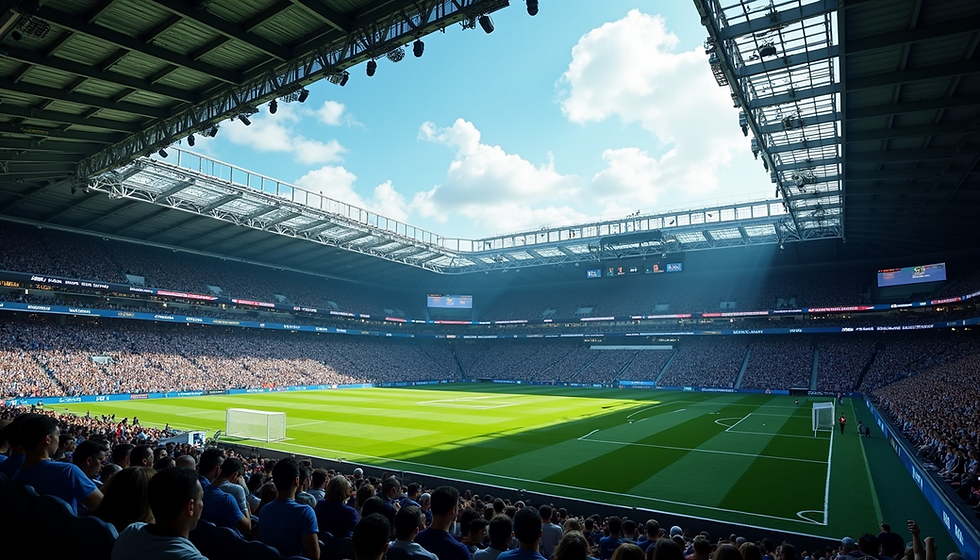Boost Your Sports Career with Effective Networking
- Chester Khangelani Mbekela

- Sep 15
- 3 min read
In the competitive world of sports, talent alone is not always enough to reach the top. Building strong athlete connections can open doors to new opportunities, sponsorships, and career growth. Networking is a powerful tool that helps athletes connect with coaches, agents, sponsors, and fellow players. This article explores practical ways to boost your sports career through effective networking strategies.
Why Athlete Connections Matter in Sports
Athlete connections are essential because they create a support system and open pathways to success. When you build relationships with the right people, you gain access to valuable advice, mentorship, and opportunities that might not be publicly available. For example, a coach might recommend you for a team tryout, or a sponsor could offer financial support for your training.
Networking also helps you stay informed about industry trends and events. Attending sports conferences, workshops, and tournaments allows you to meet influential figures and learn from their experiences. These connections can lead to collaborations, endorsements, and invitations to exclusive events.

Key benefits of athlete connections:
Access to insider information and opportunities
Increased visibility in the sports community
Support from mentors and peers
Potential sponsorship and endorsement deals

How to Build Strong Athlete Connections
Building meaningful connections requires effort and strategy. Here are some actionable steps to help you grow your network effectively:
1. Attend Sports Events and Workshops
Participate in local and national sports events, training camps, and workshops. These gatherings are ideal for meeting coaches, scouts, and fellow athletes. Prepare a brief introduction about yourself and your goals to make a memorable impression.
2. Use Social Media Wisely
Platforms like Instagram, Twitter, and LinkedIn are powerful tools for connecting with sports professionals. Share your achievements, training routines, and sports insights regularly. Engage with others by commenting on their posts and joining relevant groups.
3. Join Athlete Communities
Online communities and forums dedicated to athletes provide a space to exchange advice and opportunities. For example, platforms like athlet net offer resources and connections tailored to athletes’ needs.
4. Volunteer and Give Back
Volunteering at sports events or coaching younger athletes can expand your network and build goodwill. People remember those who contribute positively to the community, which can lead to unexpected opportunities.
5. Follow Up and Stay in Touch
After meeting someone, send a polite follow-up message to express your appreciation and interest in staying connected. Regularly check in with your contacts to maintain relationships over time.

Tips for Effective Communication in Athlete Networking
Effective communication is the foundation of strong athlete connections. Here are some tips to enhance your networking conversations:
Be genuine: Show authentic interest in others and avoid coming across as self-centered.
Listen actively: Pay attention to what others say and ask thoughtful questions.
Be concise: Keep your introductions and messages clear and to the point.
Share your story: Briefly explain your sports journey and what you aim to achieve.
Offer value: Think about how you can help others, whether by sharing information or offering support.
Using these communication strategies will help you build trust and rapport with your network.

Leveraging Athlete Connections for Career Growth
Once you have established a network, it’s important to leverage it strategically to advance your sports career. Here are some ways to do that:
Seek Mentorship
Identify experienced athletes or coaches who can guide you. Mentors provide valuable feedback, help you set realistic goals, and introduce you to their contacts.
Explore Sponsorship Opportunities
Sponsors often look for athletes with strong networks and visibility. Use your connections to learn about sponsorship programs and how to apply.
Collaborate with Peers
Partnering with fellow athletes for training sessions, competitions, or social media campaigns can increase your exposure and improve your skills.
Stay Updated on Industry News
Your network can keep you informed about upcoming tryouts, scholarships, and events. Being proactive in these opportunities can give you a competitive edge.

Keep Growing Your Network Continuously
Networking is not a one-time activity but a continuous process. As your career progresses, keep expanding your connections by:
Attending new events and conferences
Joining different sports organizations
Engaging with emerging athletes and professionals
Updating your online profiles regularly
Remember, the quality of your connections matters more than quantity. Focus on building meaningful relationships that support your long-term goals.
By consistently nurturing your athlete connections, you create a strong foundation for a successful and sustainable sports career.








Comments